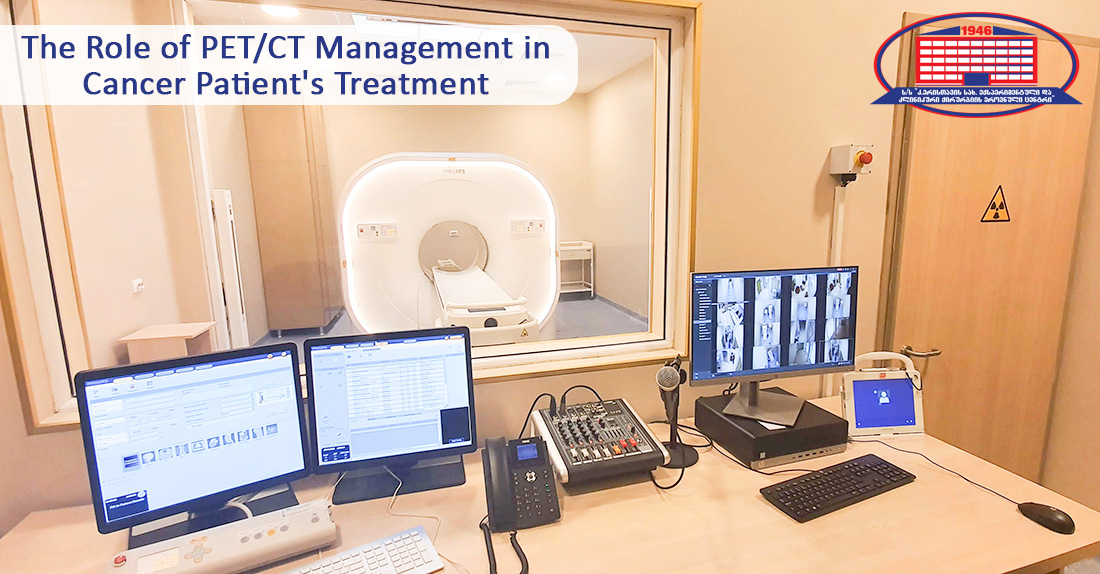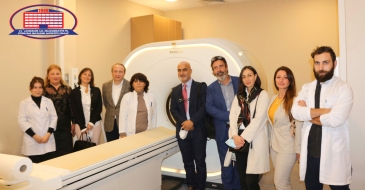
National Center of Surgery’s Department of Nuclear Medicine
A middle-aged man with a diagnosis was referred to the radiotherapy department of the National Center of Surgery-malignant tumors of the Oral Cavity (Mouth) and Oropharyngeal (Throat) Cancer, metastasizing to the neck lymph node, on the right. Chemotherapy and Radiotherapy were treated by a clinical oncologist at our center.
CT scans of the neck and chest revealed a large number of lymph nodes in the neck of the right, more likely the damaged structure of the neck lymph nodes, with maximum size on the right, up to 29 mm in the chin collector, on the right, up to 28 mm in the carotid collector. Furthermore, a nonspecific nodule up to 5 mm in size was found in the chest section, in the upper region of the lung, necessitating dynamic surveillance.
Standard anatomical CT imaging scans are utilized in radiotherapy to select and size the treated target (cancer cells). Medical practice, on the other hand, reveals that the volume of the target area can be lowered or raised based on Positron Emission Tomography (PET-CT) imaging data, which is the basis for accurate and high-quality treatment.
Instead of traditional CT scheduling, our center's radiation and nuclear medicine professionals used an immobilization device, a Thermoplastic mask, and LAP lasers to perform PET-CT management.
On imaging scans, small metastatic lesions were found bilaterally in the lungs. As a result, the patient's treatment strategy was altered and more precisely determined using Positron Emission Tomography. He was eventually assigned to an oncologist for systemic treatment. Following that, the issue of radiation therapy is still being considered based on control studies.
We'd like to remind you that the Department of Nuclear Medicine has Georgia's only Digital Positron Emission Computed Tomography (PHILIPS VEREOS DIGITAL PET/CT), which allows us to diagnose and combat cancer at an early stage.
Call the Department of Nuclear Medicine at the National Center of Surgery at (032) 2 02 25 25!
Wish you health!
What are patients interested in
Chemotherapy
Qauestion:: Hello, My mother received several courses of chemotherapy, because of metastatic involvement of bone and liver. During that time platelet count significantly decreased and only presented with small skin hemorrhages. In chemotherapy, platelet count sometimes increases or decreases, she simultaneously takes Revolade (50mg) on a daily basis and underwent platelet transfusion several times that had an only short-term effect. Is it possible to find another solution for the mentioned problem at your clinic? Thanks in advance










